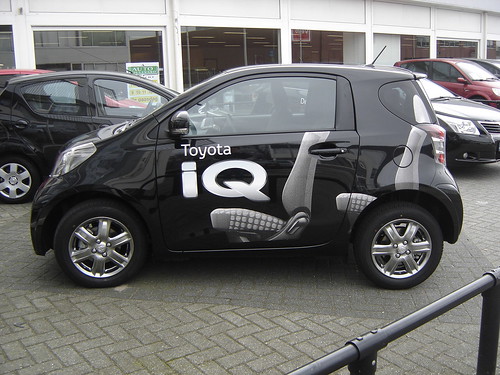Last Updated on October 31, 2012, 2:41 pm ET
On Monday the Supreme Court heard oral argument in the case of Kirtsaeng v. Wiley & Sons, a case in which the key issue is the proper scope of the “first sale doctrine” in copyright law. As you probably know if you’re reading this blog, the first sale doctrine is the part of the law ordinarily relied upon by libraries and many others to enable lending and re-selling copyrighted works without permission or payment to the copyright holder. The doctrine is well over 100 years old, and is codified at Section 109 of the Copyright Act. In this case, the first sale doctrine is being challenged by a publisher who seeks to block resale in the US of the cheap editions it authorized to be printed and sold abroad.
Three parties presented their cases to the Court at oral argument: Kirtsaeng, Wiley, and the US government. Each party argued for a different version of first sale. The overall impression from those in attendance, which is supported by the transcript, is that more justices voiced concerns about the consequences of Wiley’s arguments, which would abolish the first sale right for anything manufactured abroad, than were troubled by Kirtsaeng’s position, which would make it harder for rightsholders to control prices of their goods. No one seemed satisfied with the middle path described by the US solicitor general.

Justice Breyer is very concerned about whether you can re-sell this foreign Toyota.
The lawyer for Kirtsaeng argued that any sale of a lawfully made copy, anywhere in the world, is sufficient to provide the buyer with full ownership rights under the first sale doctrine. This is the view of the Owners’ Rights Initiative, the broad coalition of first sale supporters of which ARL is a member, and is the best case scenario for libraries. Justice Ginsburg was the only justice who seemed outwardly hostile to this view, saying that no other country has a principle that is as broad. The questioning from other justices, primarily Justices Breyer, Kagan, and Sotomayor, was much less pointed and seemed aimed primarily at fully understanding the argument.
The lawyer for Wiley (seasoned Supreme Court litigator Theodore Olson, former Solicitor General under President George W. Bush) argued that first sale rights do not apply to foreign made copies, period. Several of the justices expressed concern about the consequences of that view, with Justice Breyer leading Olson through several questions concerning used Toyotas as well as libraries and museums, and making reference to the millions of library books printed abroad. Tellingly, Olson had no theory or defense prepared that would reassure the Court that deciding in Wiley’s favor would not have absurd consequences. Olson avoided directly addressing what the justices called “horribles” for so long that Justice Kennedy even lectured Olson on the importance of considering such consequences for the Court, saying, “You’re aware of the fact that if we write an opinion with the — with the rule that you propose, that we should, as a matter of common sense, ask about the consequences of that rule. And that’s what we are asking.” Olson ultimately said Congress should address these concerns, rather than the Court.
The lawyer from the US Solicitor General’s office argued for a middle path that would apply first sale to works made abroad but imported and sold with rightsholder authorization in the US, but not to works made and sold abroad. While this position is not ideal for libraries, it is one of the options presented in the LCA brief as a better solution than the extreme holding in the Second Circuit, which sided with Wiley. Several justices expressed skepticism that the law could be interpreted in the complicated manner required for a middle path to work. Justice Alito all but ignored the US’s view and asked, instead, for the US attorney to choose which view—Wiley’s or Kirtsaeng’s—had the least bad policy consequences. The US attorney sided with Kirtsaeng.
It is notoriously difficult to predict outcomes based on oral arguments. That said, it is clear that several justices were deeply concerned about the parade of horribles, including harm to libraries, that would follow from the Wiley view becoming law. Perhaps most importantly, Justice Kagan was pointed in her questioning of Mr. Olson, restating the Kirtsaeng position persuasively and even asking pointedly whether Olson would admit that nothing in the text of Section 109 supports his view that the statute should exclude foreign-made works. Kagan’s opinion is especially important as she may be the “swing vote,” assuming the 4-4 result in the earlier Costco v. Omega first sale case, from which she recused herself, reflected a truly deadlocked court. There also did not seem to be much enthusiasm for the US government’s proposal of a middle path that would allow some first sale rights for foreign-made goods, but stop short of Kirtsaeng’s position. The most active questioners were the liberal justices, Breyer, Kagan, and Sotomayor, who seemed to be wrestling with the statutory language. Conservative justices Roberts, Scalia, and Alito said relatively little (although Alito’s question for the US about which side’s theory was least troubling was very telling). Swing Justice Kennedy was also relatively quiet, and justice Thomas kept his customary silence. The case has been submitted for decision and we can expect an opinion before June 2013, but perhaps as soon as January.
The complete transcript is available here: http://www.supremecourt.gov/oral_arguments/argument_transcripts/11-697.pdf.



